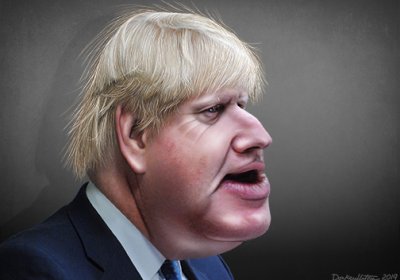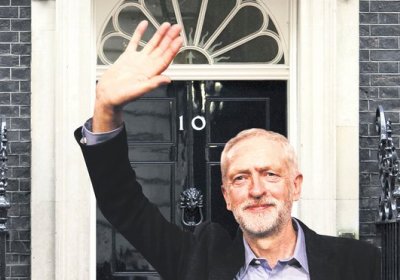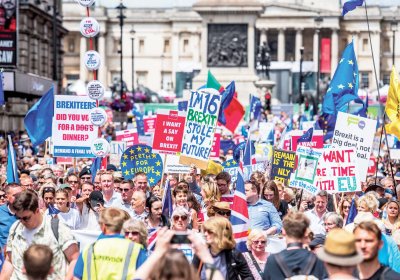Since Conservative Party Prime Minister Rishi Sunak called the election, it has so far been a largely dull campaign, which from Brexit to Palestine, has ignored important issues and strategically focussed on trivia, reports Derek Wall.
Labour Party (UK)
The British Labour Party’s National Executive Committee (NEC) has voted to bar former leader Jeremy Corbyn from standing as a Labour candidate in the 2024 general election, reports Alex Salmon.
Britain’s impressively dishonest and disorganised right-wing Prime Minister Boris Johnson is leaving office, and just about everybody is pleased to see the back of him, writes Derek Wall.
At the end of October, Jeremy Corbyn was suspended from the British Labour Party, writes Jonathan Strauss. What Corbyn does next is a topic of discussion in and outside the party.
The British Labour Party has promised to “kick-start a housing revolution” as it unveiled its election manifesto, including commitments that would bring about Britain’s biggest public housing construction program for decades.
Following the European Union’s agreement to grant Boris Johnson’s government until next January to exit the EU, the House of Commons voted to hold a snap election on December 12. At the time of writing the election bill has yet to pass the House of Lords, but looks a certainty.
Politics in Britain is in turmoil. An early election will most likely happen as soon as December, or at the latest within a few months — the second early election since 2017.
This election will pit the Jeremy Corbyn-led Labour Party against various parties representing the interests of the 1%, including the governing Conservative party (Tories), the Liberal Democrats and the recently-formed, far right, Brexit Party.
With only a few hours’ notice, thousands of people filled London’s Parliament Square on August 28 to protest against British Prime Minister Boris Johnson’s plan to shut down parliament for several weeks ahead of the Brexit deadline on October 31.
The shutdown is aimed at undermining attempts by MPs to prevent a No-Deal Brexit, or attempts to move a motion of no confidence in Johnson’s leadership.
Chanting “You shut down the parliament, we shut down the streets”, more than 10,000 protesters blocked main thoroughfares around parliament for several hours.
Though Boris Johnson was swept to power with apparent ease in the leadership election, deep divisions in parliament and the British public at large mean that delivering his three promises “deliver Brexit, unite the country and defeat Jeremy Corbyn“ will be a great challenge, writes John Lawrence.
Following Conservative Party leader Boris Johnson’s appointment as British Prime Minister, commentators are predicting a general election, possibly as early as October.
While a victory for Labour is far from certain, as it drops in the polls, Jonathan Cook writes that powerful forces are at work to ensure that Jeremy Corbyn — still the most popular Labour politician — never gets the chance to govern.
Two very different demonstrations within less than a week of each other neatly illustrated just how polarised British politics is.
At the moment there is only one real mass movement in Britain — the one which got 700,000 people onto the streets of London in October last year calling for a new referendum. Labour should be leading it rather than be perceived as equivocating about it, writes Liam McQuade.
- Page 1
- Next page











